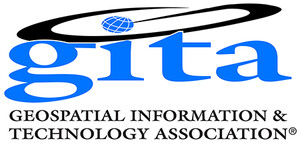The Geospatial Information & Technology Association (GITA) will be hosting a webinar this Thursday, March 22 on the topic of "Women in Geospatial". Full details for this online event can be found at the following link and copied below: Webinar: Women in Geospatial.

Narrative
TRELIS-GS is set of NSF funded workshops to Train and REtain Leaders in STEM Geospatial Science. The goal of the workshops is to provide mentorship, professional development, and support for women in geospatial sciences and to address discipline- and community-level challenges that they may face throughout their career. With the TRELIS project, we encourage women to develop STEM skills relevant to their desired career track in geospatial sciences, and demonstrate by example the types of mentoring skills that will help them catalyze other women training in the geospatial STEM disciplines.
In our presentation we will provide some background and context about the opportunities and challenges for women in geospatial fields, discuss the primary objectives of TRELIS, the upcoming workshop in Madison, WI this spring, and how women and men across the geospatial community can come together to help build a more effective, diverse, sustainable workforce.
Following the presentation, we will reserve time for group discussion and questions on synergistic activities, resources, and activities that you engage in for supporting, training, mentoring, and retaining women in the geospatial field.
Facilitator Bios
Sarah Battersby is a research manager at Tableau Software. Her primary area of research is cartography, with an emphasis on cognition. Her work emphasizes how we can help people visualize and use spatial information more effectively. Her research has covered a variety of areas, including perception in dynamic map displays, geospatial technologies and spatial thinking abilities, GIScience education, and the impact of map projection on spatial cognition. Sarah earned her PhD in Geography in 2006 from the University of California at Santa Barbara. She is a member of the International Cartographic Association Commission on Map Projections, and is a Past President (2015 - 2016) of the Cartography and Geographic Information Society – a society composed of educators, researchers and practitioners involved in the design, creation, use and dissemination of geographic information.
Laxmi Ramasubramanian, Ph.D., AICP, is an Associate Professor of Urban Policy and Planning at Hunter College, CUNY. Dr. Ramasubramanian seeks to inform and transform planning practice in order to create a just and equitable society. Specifically, her research examines how the use of digital technologies such as GIS can alter social and political processes, particularly the power of individuals and institutions to create and sustain social change. Her research is synthesized in her first book Geographic Information Science and Public Participation (Springer, 2010). Dr. Ramasubramanian’s second book, Essential Methods for Planning Practitioners: Skills and Techniques for Data Analysis, Visualization, and Communication, co-authored with Professor Jochen Albrecht (Springer, 2018) bridges theory and practice by framing 21st-century planning practices in their socio-political and ethical context. Dr. Ramasubramanian served as the president of the University Consortium for Geographic Information Science (2012-2014) and currently serves on the board of the American Collegiate Schools of Planning. In 2016, Dr. Battersby and Dr. Ramasubramanian were appointed to the National Geospatial Advisory Committee, a federal advisory committee that provides guidance to the federal government on matters of national geospatial policy.